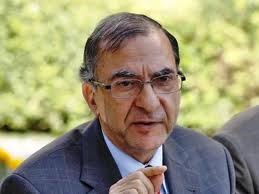Kashmiri Americans Observed July 13th As the Martyrs Day: Dr. Fai
Washington, D.C. July 13, 2014. The Kashmiri Americans join the worldwide Kashmiri community to observe “Martyr’s Day”, in memory of 22 Kashmiris killed by Dogra troops on this day in 1931. The ‘Martyrs Day’ memorializes all those innocent victims, nearly 100,000, “who have been forcibly silenced by the occupation forces that erupted two and half decades ago,” said Dr. Ghulam Nabi Fai, Secretary General of the World Kashmir Awareness.
Fai expressed concern over the on going tragic situation in Kashmir because all available evidence testifies that human rights violations are systematic, deliberate, and officially sanctioned. India has given its forces powers to shoot to kill and the license to abuse the people in whatever ways they like in order to suppress the popular movement for basic human rights and self-determination.
He emphasized, ‘India trembles at any attempt to resolve the Kashmir crisis because she is frightened by its outcome.’ When a former Defense Minister, Krishna Menon, was questioned as to why India would never hold a free self-determination election in Kashmir, he confessed that all of India’s political leaders knew it would lose. And would 700,000 soldiers be needed in Kashmir if the main opponents to India’s occupation were but a handful of outside “extremists”? The question answers itself.
Fai questioned the statement of India’s foreign ministry spokesman who said that Kashmir was an integral part of India. Kashmir is not an integral part of India, nor are Kashmiris separatists, he underlined. Because under all international agreements between India and Pakistan, negotiated by the United Nations and endorsed by the Security Council, Kashmir does not belong to any member country of the United Nations. So, the claim that Kashmir is an integral part of India does not stand. The people of Kashmir are not and cannot be called separatists because they cannot secede from a country to which they have never acceded to in the first place.
Even one of India’s well-known author, Ms. Arundhati Roy confirmed it by saying ‘It’s (Kashmir) not ever been really a part of India, which is why it’s ridiculous for the Indian government to keep saying it’s an integral part of India.’
Fai discounted the United States hopes that the Kashmir dispute could be settled through bilateral peaceful talks between India and Pakistan. He recounted the litany of failed bilateral efforts and said that the people of Kashmir have steadfastly maintained that tripartite talks are the only way to resolve the Kashmir issue.
We hope that the United States and the international community will realize that what is at stake in the dispute is not only the survival of the people of Kashmir but also the peace and stability in the region of South Asia, Fai stressed.

 This flood was the first in history, in the living memory of Kashmir. More than 450 people are dead, and more than $1bn in destruction has been estimated. The actual magnitude of the total destruction, the number of dead and the people who are missing may not be known for some time. Kashmir Valley was cut off from the rest of the world for days. Thousands of villages have been submerged, including the capitol city of Srinagar. Hundreds of thousands of people particularly in the rural areas still remain trapped without any outside help or rescue and relief. There has been a total breakdown in communication with no telephone contact of the people with their loved ones Boats were not available. People had to stand on their rooftops waiting for someone to rescue them.
This flood was the first in history, in the living memory of Kashmir. More than 450 people are dead, and more than $1bn in destruction has been estimated. The actual magnitude of the total destruction, the number of dead and the people who are missing may not be known for some time. Kashmir Valley was cut off from the rest of the world for days. Thousands of villages have been submerged, including the capitol city of Srinagar. Hundreds of thousands of people particularly in the rural areas still remain trapped without any outside help or rescue and relief. There has been a total breakdown in communication with no telephone contact of the people with their loved ones Boats were not available. People had to stand on their rooftops waiting for someone to rescue them.